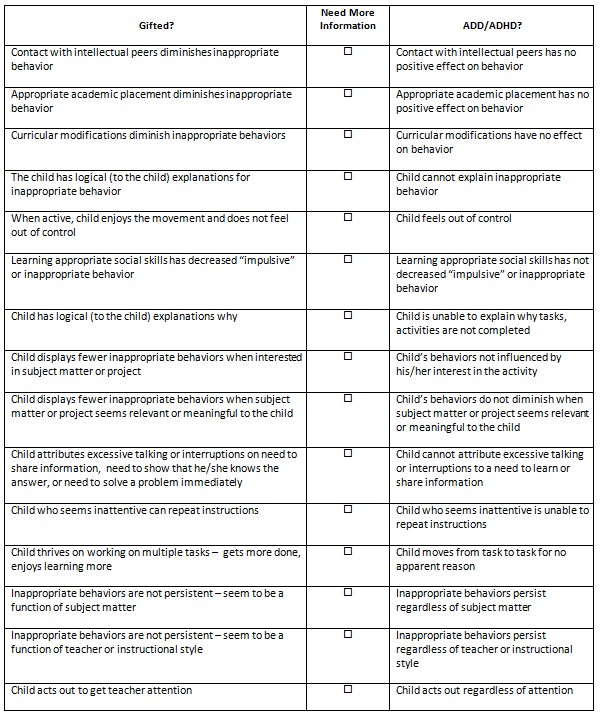Counseling, Multiple Exceptionality, and Psychological Issues

A clinical psychologist warns that gifted children are often misdiagnosed with conditions like Asperger’s or ADHD. The article explains differences in social reciprocity and interests, stresses careful differential evaluation, and argues appropriate interventions—such as intellectual peer interaction—avoid stigma and improper treatment.
Introversion

Sharon Lind urges respect for individual differences and explains gifted introverts are often misunderstood. Introversion differs from shyness: introverts recharge through solitude and process internally, while shy people avoid perceived threats. Introverts may be sociable or shy; they need time alone and understanding from others.
Before Referring a Gifted Child for ADD/ADHD Evaluation

Gifted children can display behaviors mistaken for ADD/ADHD. Before referring, parents and educators should consider whether the educational environment or unmet needs cause the behavior and try appropriate adjustments. If concerns persist, seek a diagnostician experienced with giftedness and obtain a comprehensive clinical evaluation.
ADHD

Expert guidance on ADHD emphasizes early onset and the need for assessment across multiple settings. Parents should consult pediatricians, teachers, and school psychologists. Behavioral interventions, token systems, and self-management, tailored to each child, can reduce symptoms though ADHD often persists long-term.
